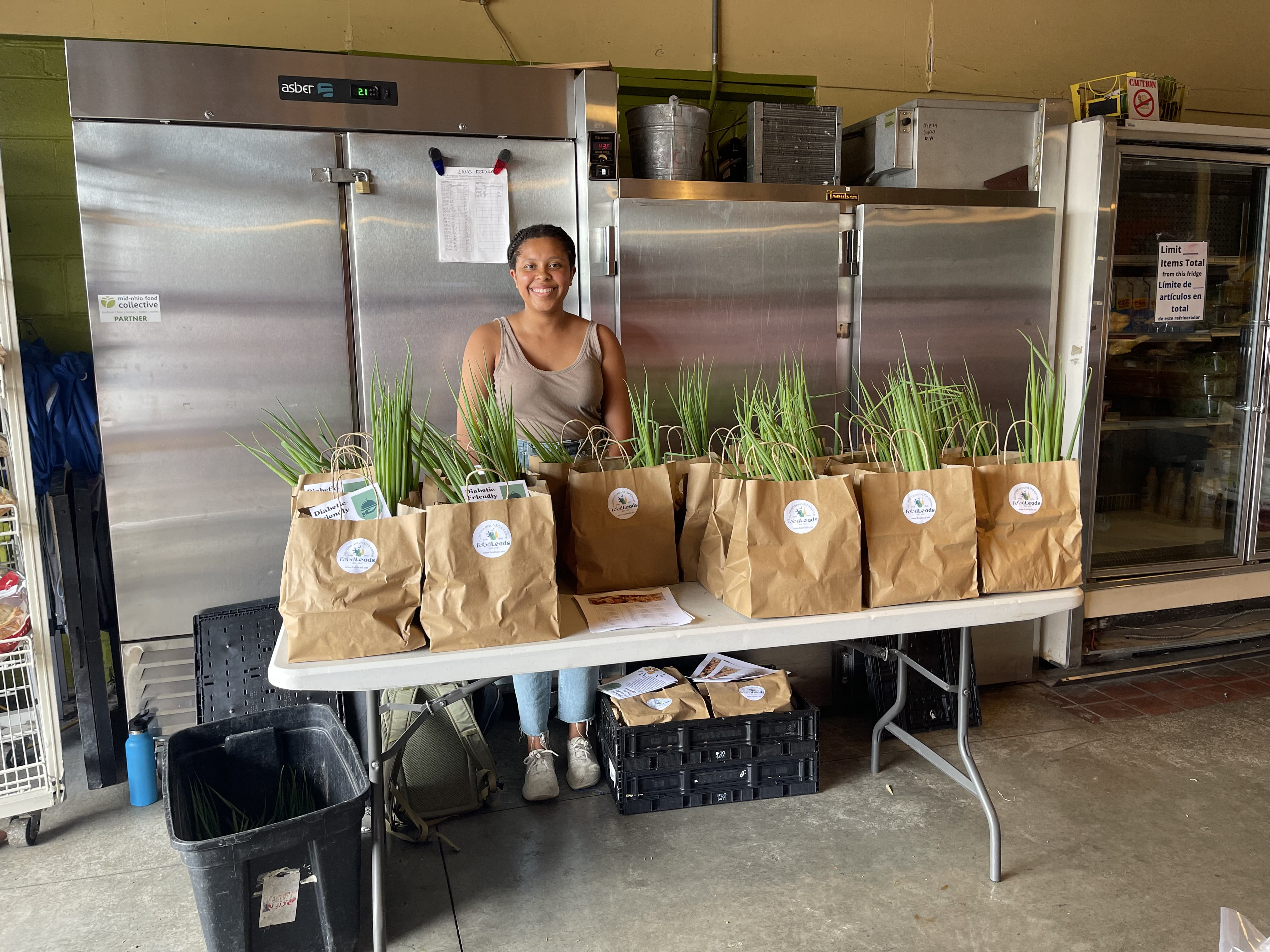
Food Leads owner Christina Allen sets on making food accessible to help Type 2 diabetics patients manage their conditions. Credit: Courtesy of Christina Allen
According to the National Institutes of Health, Type 2 diabetes — often linked to weight gain and food insecurity — affects Black adults more than twice as frequently as their white counterparts in the U.S.
Christina Allen, founder of Food Leads, wants to increase food accessibility and sustainability for diabetic patients in Columbus. As one of two graduating seniors to receive the 2021 President’s Prize at Ohio State for $100,000, Allen said she used those funds to launch Food Leads to assist people with pre-diabetes and diabetes in managing their conditions by offering free meal kits.
“We are a community organization that’s invested in taking an equity approach to relieving some health disparities that are experienced specifically in Black low-income communities in Columbus with diabetes,” Allen said. “Our mission is to alleviate the food access and nutrition barriers that surround diabetes prevention and management for Black communities.”
Allen said most of her family have been diagnosed with Type 2 diabetes. When her father was diagnosed, he wasn’t given proper education on dieting. This motivated Allen to start Food Leads to help Black people with diabetes manage their conditions, she said.
Allen decided to expand the horizon of her organization by working on a nutrition education pilot program, a six-week program for diabetic and pre-diabetic people from low income communities. Allen said medications are offered to those managing their conditions, but not dieticians who can teach them how to eat and prepare healthy meals.
According to the Centers for Disease Control and Prevention, adults who suffer from food and nutrition insecurity are two to three times more likely to have diabetes than people who do not experience these same challenges.
“People who are food insecure are much more likely to have diabetes and much more likely to have uncontrolled diabetes,” Allen said. “We all know that it should be paired with lifestyle changes to support reversing and managing diabetes.”
Allen said Food Leads partners with All People’s Fresh Market, as well as Linden Market in Columbus to deliver fresh produce meal kits to people with diabetes. She said the meal kits are free and delivered every week. In its pilot program, Food Leads served 50 meal kits, according to its website.
“They are essentially food produce put together to help gain knowledge and improve the cooking skills of diabetic friendly meals,” Allen said.
Allen said Food Leads has a diabetes enrollment program in which people who are diabetic or pre-diabetic can sign up to receive meal kits weekly through Food Leads’ website. She said she hopes food incentives come together to help battle food insecurity in the future.
“We want to be a facilitator to encourage the food system to become more interconnected and support marginalized people on the consumer and the producer side,” Allen said. “My second goal would be just for organizations to keep building sustainability.”
Jill Clark, associate professor in the John Glenn College of Public Affairs, said she and Allen were both concerned about addressing food security, and they collaborated on numerous projects and amounts of research before Allen established Food Leads.
“She was an exceptional collaborator,” Clark said. “She is an exceptional community member and change leader.”
Clark said Allen used her knowledge, some research and effective community partnerships to assist in putting together Food Leads, ensuring it fulfilled neighborhood needs.
“When I think of Food Leads, I think of a project that is in tune with our community members’ wants and needs,” Clark said. “Allen was very careful to ensure that her ideas resonated with the people she would be working with.”
Clark said there is a difference between treating a symptom and managing the disease. There is a disproportionate rate of diet-related diseases like diabetes, and some communities have a hard time accessing food or education, she said.
“The solution is not necessarily treating but going back to the root sources of the problem,” Clark said. “I think that what Food Leads is doing is treating the whole person knowing that access and education is a foundational reason why folks have diet-related diseases, to begin with.”
Bolu Ishola, a fourth-year in human nutrition who interned at Food Leads in November 2021, said many initiatives aimed at promoting nutrition do not focus on culture, and many are discouraged from incorporating cultural food when making healthier decisions. She said these initiatives aim to help community members, but Food Leads interacts directly with the community and receives feedback.
“We got to learn a lot from our community members as well as giving them information that was accessible, easy to read and just what needed to be able to have access without having specialists,” Ishola said. “It is saddening that not a lot of people have access to the resources they need.”


